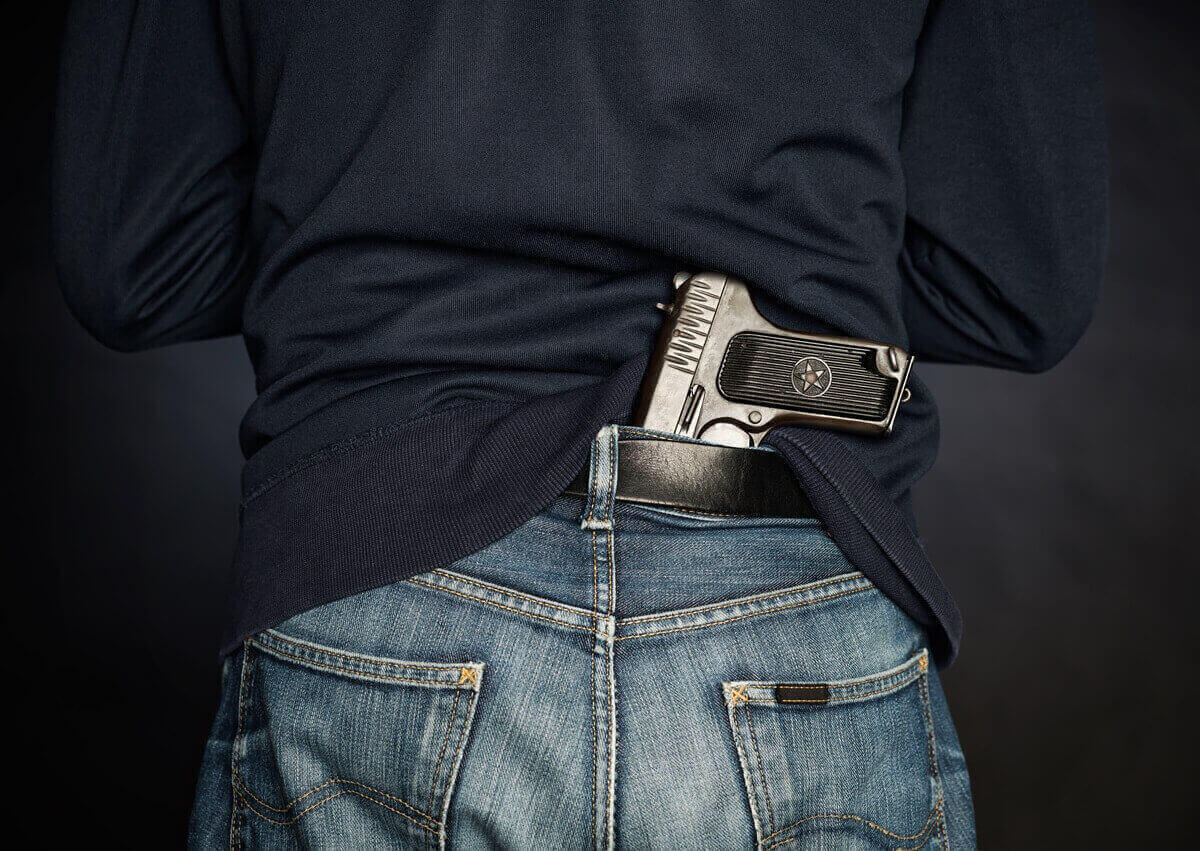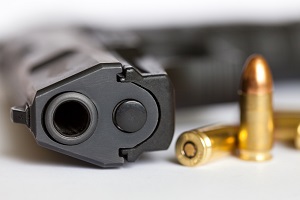If you are dealing with a gun crime charge in Fort Worth, TX, it can be challenging to navigate the legal system on your own, even if you’ve been through it before. That’s where a Fort Worth Gun Lawyer comes in and makes all the difference.
A gun crime charge can have some serious consequences. You could end up losing your freedom or important rights. A good lawyer can help protect them and make sure you’re getting strong representation throughout your case. This article will help you learn some of the things you need to know, from gun laws to their restrictions and penalties.


Gun Laws In Texas
There are numerous laws in the Texas Penal Code that govern how guns can be used and carried. In Texas, you no longer need a license to carry a gun. As of September 2021, House Bill 1927 allows people who qualify under the law to carry a handgun in public places without a license to carry (LTC).
However, even without the need for a license, there are still certain requirements that must be met to legally carry a handgun in public places. First of all, a person must be at least 21 years old and not have a prior felony conviction or recent conviction for certain types of misdemeanors. Moreover, federal law prohibits a person from possessing a firearm if they are subject to an unexpired protective order or are prohibited from owning one.
While the new law allows people to carry handguns without a license to carry, Texans can still apply if they wish to do so. A license offers additional benefits, such as carrying a handgun in more locations and under more circumstances.
Possession Of Handguns: Who Is Eligible?
According to Texas Penal Code §46.04, people with certain criminal records aren’t allowed to possess handguns. These include felony offenders, domestic assault offenders, those under protective orders, and those with mental health problems.
If it’s been at least five years since you completed all of your sentence requirements, then you may be able to have your gun rights restored. You should, however, consult with a skilled attorney to determine if your particular case is qualified for it.
There are also some people who are banned from having a handgun under federal law. Below are a few examples as stated in U.S. Code §922(g).
- A person who has been convicted in any court of a crime punishable by imprisonment of more than one year.
- Fugitives from justice (meaning people who have fled from one state to avoid prosecution in another).
- Drug users as defined by the Controlled Substances Act.
- People with mental disabilities or people who have been committed to mental institutions.
- Illegal alien.
- Anyone dishonorably discharged from the Armed Forces.
- Those who renounced their U.S. citizenship.
- Individuals who have a court order restraining them from stalking, harassing, or threatening a child or an intimate partner.
- People convicted of misdemeanor crimes related to domestic violence.
If you violate federal law by having a handgun and got caught, you may face up to ten years in federal prison and fines. So, it’s important to know the laws if you’re planning on carrying a handgun in Fort Worth.
Restrictions & Permissions For Carrying Handguns
To be considered eligible to carry a gun, you must meet certain criteria in the Texas Government Code §411.172. Below are a few examples.
- At least 21 years of age.
- Have no previous convictions of certain misdemeanors or felonies.
- Not a fugitive from justice for felonies, misdemeanors, or other equivalent offenses.
- Not dependent on drugs or other illegal substances.
- Capable of making sound judgments about how to use and store a handgun.
People who fulfill the eligibility requirements can lawfully carry a handgun beyond their homes or in most public places. The law allows them to openly carry a handgun in a shoulder or belt holster.
However, as defined in Texas Penal Code §46.03, there are some places where guns are prohibited entirely. These places include but are not limited to, locations such as:
- Schools and educational institutions.
- Government courts and offices.
- Public polling places on election day or when early voting is taking place.
- Racetracks, and secured areas at airports.
- Correctional facilities and civil commitment facilities.
Private property owners, however, have the right to prohibit open carry on their premises by displaying the appropriate signage.
Local Regulations In Fort Worth
Fort Worth also has its own set of ordinances regarding firearms. According to City Code 23-6, it is illegal to discharge a firearm within city limits without a lawful purpose. Violating these ordinances can result in fines and even imprisonment. However, there are exceptions to this rule such as self-defense, law enforcement activities, and shooting ranges that have been approved by the city.
Penalties For Violating Handgun Restrictions
The penalties for gun restrictions violations greatly depend on how severe is an alleged offense and on the class under which it is charged. A gun charge can range from a Class C misdemeanor to a third-degree felony. Misdemeanor gun charges can be charged as either Class A, B, or C crimes. Whereas, felonies can be classified as either first-degree, second-degree, third-degree, and or state jail crimes depending on the degree of the offense.
Consequences For Misdemeanor Crimes
Misdemeanors offenses include the illegal discharging and displaying of a gun in public places and possessing a gun by a prohibited person. This is stated under Texas Penal Code §42.01. The penalties for these offenses carry a maximum one-year sentence in county jail and associated fines of up to $4,000.
Handgun possession charges can be applied to persons engaged in criminal activity or a member of a criminal street gang. This is applicable if they were convicted of domestic assault, and possessed a handgun within five years of the date the sentence ended or after receiving a protective order.
Unlawful possession of a firearm is generally considered a Class A misdemeanor. It comes with a presumptive sentence that can reach up to one year in jail and fines not exceeding $4,000. There are also cases where it is considered a third-degree felony.
Penalties For Felony Gun Crimes
First-degree felony gun charges include aggravated robbery with a firearm. Aggravated assault using a deadly weapon on a romantic partner, family member, or a public servant, is also a first-degree felony. These offenses have the harshest punishments with five years to life imprisonment and fines of up to $10,000.
A second-degree felony is punishable by up to 20 years in prison, with a maximum $10,000 fine. Some examples are threatening an individual with a deadly weapon, and smuggling three or more guns in a single criminal episode.
People with previous felony convictions can also get second-degree felony gun charges based on the following.
- They are found guilty of possessing a firearm within five years of release from confinement following a felony conviction.
- They have violated handgun-carrying restrictions within five years of being released from community supervision, parole, or mandatory supervision.
Meanwhile, a third-degree felony can be punishable by as long as ten years of confinement in jail, with up to a $10,000 fine. State jail felonies, on the other hand, carry a maximum two-year jail sentence and a fine of $10,000. Unlawful gun possession by a felon and reckless discharge of a handgun are some examples of a third-degree felony. Also, bringing a firearm to places that prohibit it, like schools, airports, or businesses with signage restricting it, is also considered as one.
Why You Need A Fort Worth Gun Lawyer


Alleged gun-related offenses bring serious consequences as laws in every state are constantly changing. Many are confused which made it difficult to discern whether they had broken the law, causing many to unintentionally violate gun regulations. If you are facing this kind of allegation, a skilled lawyer could help you know and understand state firearm restrictions and how to avoid and defend yourself in related charges.
The Medlin Law Firm’s criminal defense attorneys will determine what your goal is for your case. They can help you build a legal strategy with that in mind, whether it involves the negotiation of a plea agreement or taking the case all the way to trial. Call them today to schedule a consultation and start exploring your options.
Summary
Owning and carrying a gun in Fort Worth, Texas, comes with specific requirements and regulations. While the new open carry law permits carrying a handgun in plain view without a license, there are still restrictions that you need to be aware of.
Facing a gun crime charge can be challenging, and a skilled Fort Worth Gun Lawyer can help protect your rights and ensure that you receive strong representation throughout your case. With numerous laws and restrictions in place, it’s important to understand the nuances of each situation and seek legal counsel to navigate the legal system. If you’re facing gun-related charges, speak with an experienced Gun Lawyer to develop a legal strategy tailored to your needs.
(682) 204-4066 We cannot receive pictures via text so please send those via email or hand deliver to our office.
(682) 204-4066 No podemos recibir imágenes por mensaje de texto, así que envíelas por correo electrónico o entréguelas personalmente en nuestra oficina.






